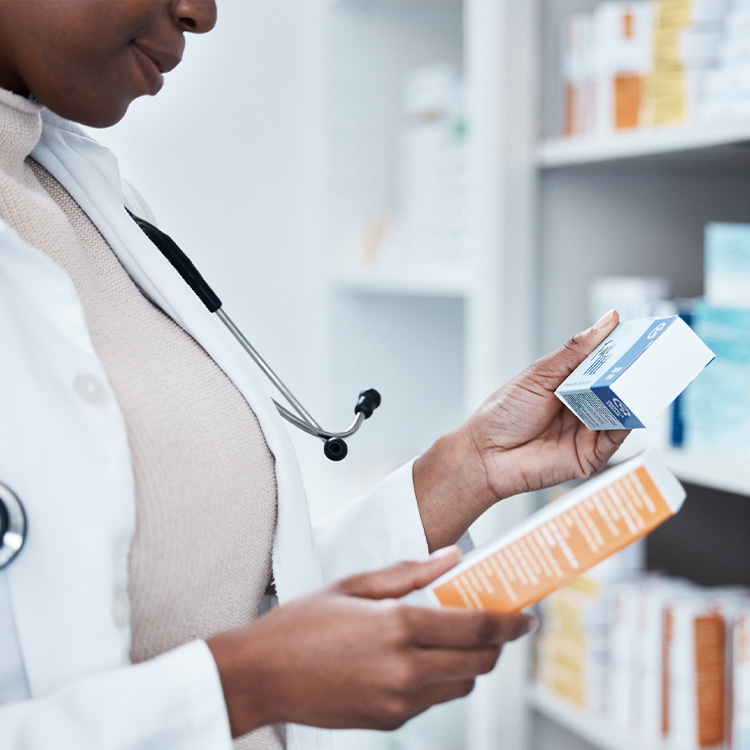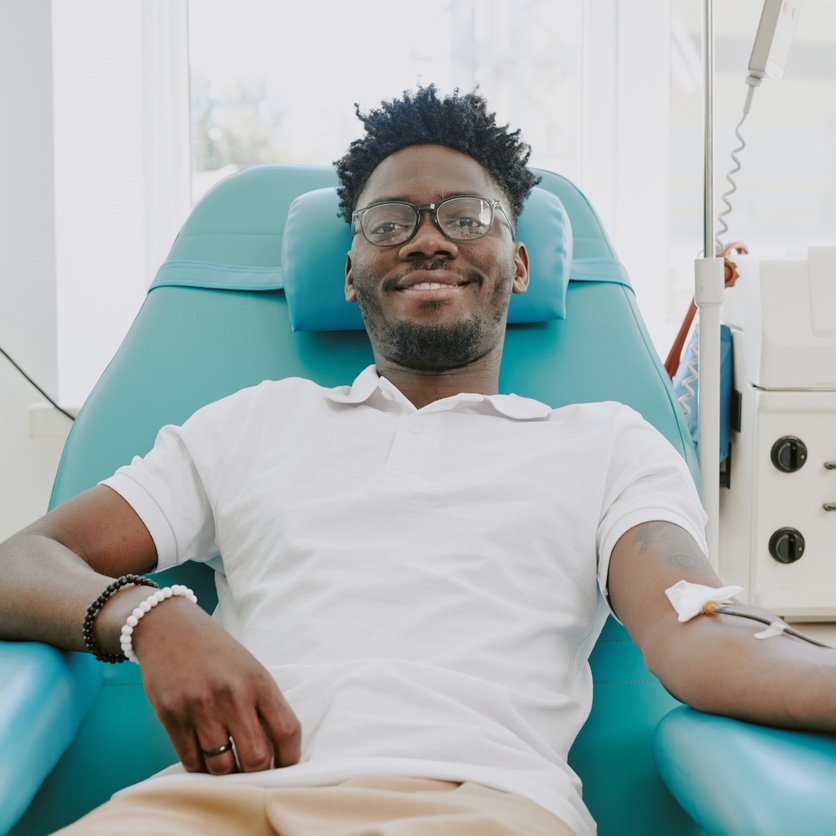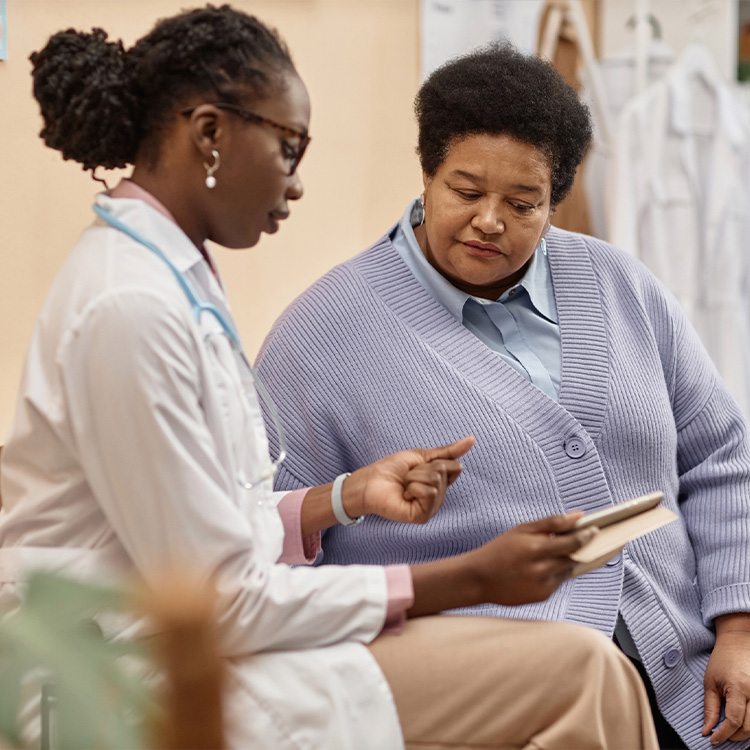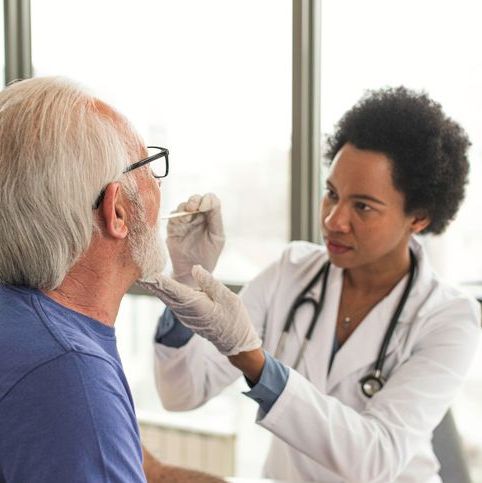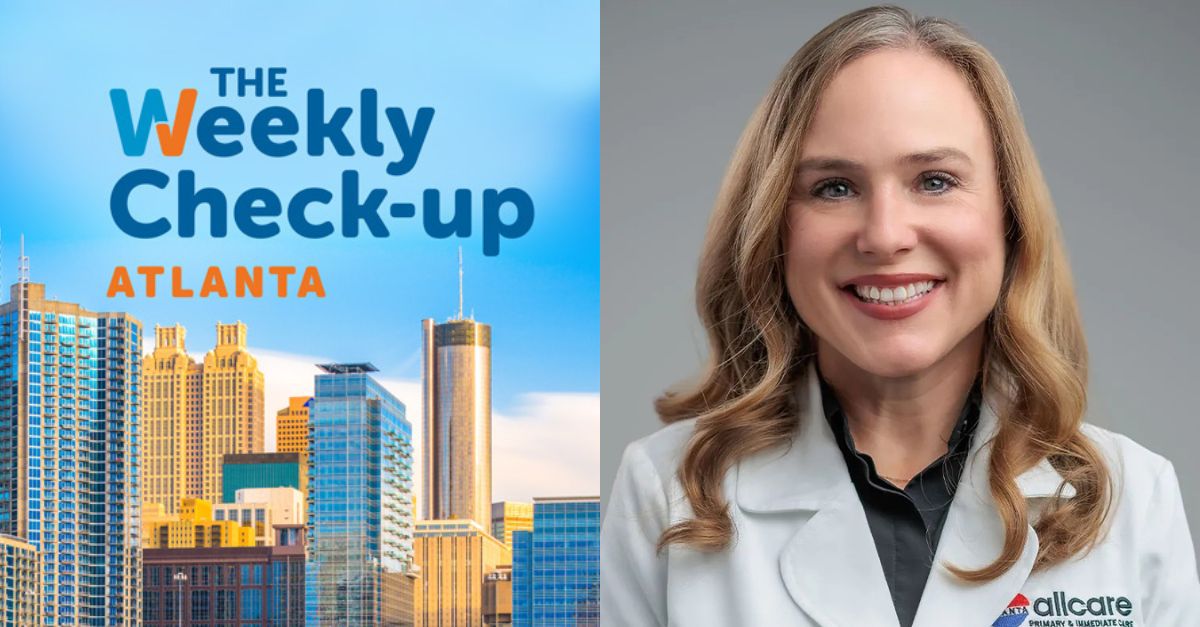AllCare is pleased to announce the opening of its newest location in Braselton, expanding access to high-quality, patient-centered healthcare for...
Cold Sore Treatment in Georgia
Quick Cold Sore Treatment
Cold sores, or fever blisters, are caused by herpes simplex, a common viral infection. They often go away on their own, but there are times you should seek treatment. At AllCare Primary & Immediate Care, our dedicated urgent care physicians can offer a precise diagnosis and treatment plan for cold sores, ensuring your comfort through every step of your journey.

How to Get Rid of Cold Sores:
Our Approach to Cold Sores Symptoms
If you’ve ever experienced a cold sore, you know how painful and frustrating it can be. Cold sores typically develop around your mouth and lips, but they can also appear on your nose, cheeks, or chin. Once you experience a cold sore, the virus that causes it will remain in your system forever. In some cases, you may never have another cold sore outbreak. However, the virus may occasionally reactivate, causing a new series of cold sores.
Our team of expert healthcare professionals at AllCare Primary & Immediate Care will perform a thorough examination and conduct any necessary tests to confirm that you are experiencing a cold sore outbreak and not another condition with similar symptoms. We’ll then provide a personalized treatment plan, ranging from antivirals to at-home remedies, to help relieve your discomfort. At AllCare Primary & Immediate Care, you can receive comprehensive primary and urgent care in one convenient location, making your path to recovery smoother and more efficient.
Our Cold Sore Testing and Treatment in Georgia

What is a Cold Sore?
A cold sore, also known as a fever blister, is a small, fluid-filled blister that typically appears on or around the lips. It is caused by the herpes simplex virus (HSV-1), although HSV-2 (associated with genital herpes) can also cause cold sores in some cases. Once the virus is in the body, it remains dormant in nerve cells and can reactivate periodically, often triggered by factors like stress, illness, or sun exposure.
Common Symptoms of Cold Sores
Symptoms of cold sores can vary from person to person. Some people don’t even have symptoms with their first attack. Cold sore symptoms include:
- Tingling, itching, or a burning sensation around your mouth usually appears a day or two before the actual cold sore
- Small fluid-filled blisters on the edges of the lower lip, around the nose and cheeks, or inside the mouth
- A yellow crust appears when the blisters dry up
- Sore throat
- Pain when swallowing
- Swollen lymph nodes (glands)
- Fever
- Aches and pains
- Headache
- Nausea
What Are the Stages of a Cold Sore?
Day 1: Early Signs
You might feel tingling, itching, or pain on your lip or the surrounding skin. This is the first indication that a cold sore may be on its way. This stage, known as the prodromal stage, means that the virus is becoming active again in your nerve cells.
Days 1 to 2: Bumps Appear
Within 24 hours of those initial sensations, small bumps may develop on or around your lips, usually along the outer edges. You might notice three to five bumps, although the number can vary. These bumps will fill with fluid, making them look like blisters, and the area can become red, swollen, and painful.
Days 2 to 3: Blisters Break
During this period, the blisters will likely burst, releasing a clear or slightly yellow fluid. This is often referred to as the “weeping” phase.
Days 3 to 4: Crusting Over
After a couple of days, the blisters will stop oozing and start to form a crust. This crust often appears as a golden-brown scab, covering the sore as it heals. Sometimes, the scab may crack or bleed.
By Day 14: Healing
Typically, the scab will fall off within six to 14 days after the outbreak begins. The skin beneath may look slightly pink or red for a few days but will eventually return to normal.


Online Doctor Visits and Telehealth Services
Experience the convenience of telehealth appointments at AllCare Primary & Immediate Care. Our telemedicine services are designed to provide you with seamless access to healthcare without the need to leave your home. Whether you need an online doctor’s appointment for immediate or primary care, AllCare’s got you covered. With our online telehealth services currently available to individuals located in Georgia, you can connect with our experienced urgent and primary care physicians via secure video calls.
At AllCare Primary & Immediate Care, we are expanding our virtual healthcare access to all services previously offered in person. This includes:
Should I Go to the Doctor for a Cold Sore?
Anyone experiencing the tingling, itching, pain, or blisters of cold sores can benefit from our cold sore treatment. While most cold sores will clear up on their own, you should seek medical attention if:
- You have a fever of 100.4°F or higher.
- The pain gets worse.
- You can’t eat or drink because of the pain.
- Your symptoms don’t get better within 10 days to 2 weeks.
- The blisters spread to your arms, chest, arms, face, eyes, or legs.
- Your cold sore is very large, painful, or deep.
- It’s near your eyes.
- You have a weakened or compromised immune system.
- You’re concerned your cold sore is something more serious.

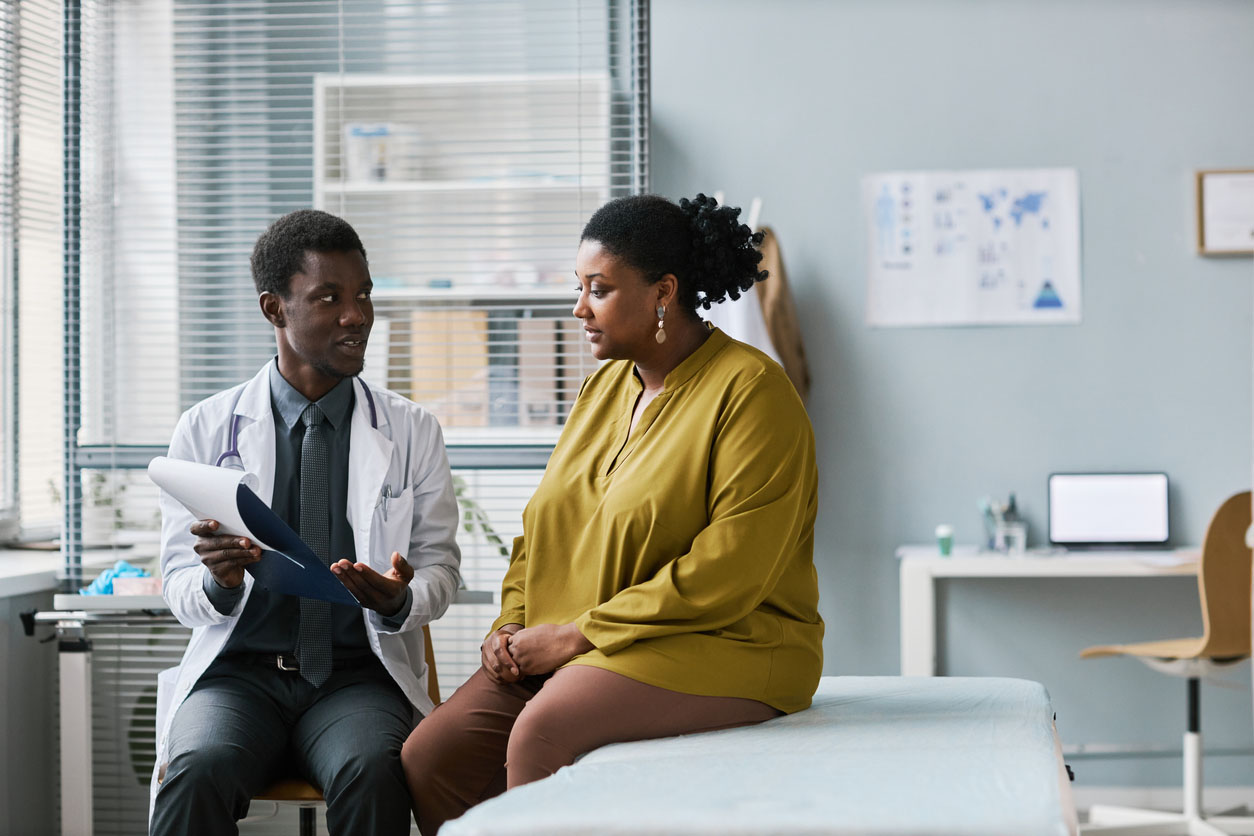
Schedule a Cold Sore Appointment at AllCare Primary & Immediate Care
Getting diagnosed and treated for cold sores is as easy as scheduling an appointment at AllCare Primary & Immediate Care, but you can also see a doctor at our facilities on a walk-in visit if needed. Here are a few simple steps for getting treated for cold sores:
- Schedule Your Appointment: Contact AllCare Primary & Immediate Care to schedule your cold sore treatment appointment and provide essential information about your symptoms and medical history.
- Visit AllCare Primary & Immediate Care: Follow our instructions for your visit and maintain physical distance, if directed to, to ensure a safe and comfortable experience during your cold sore treatment.
- Receive Your Treatment Plan: Our healthcare providers will evaluate your symptoms, perform any necessary tests, and develop a personalized treatment plan that may include oral or topical antivirals, anesthetic ointments, over-the-counter (OTC) medications, and self-care advice for home.
Frequently Asked Questions
What causes cold sores?
Cold sores are caused by the herpes simplex virus, a common virus that can remain inactive in the body. Cold sores are not directly linked to colds, fevers, or the flu; however, individuals with weakened immune systems may be more susceptible to outbreaks.
Are cold sores contagious?
Yes, cold sores are very contagious and most contagious when they burst. If you have a cold sore, you should avoid kissing, oral sex, or sharing eating or drinking utensils until your cold sore is completely healed.
How common are cold sores?
Cold sores are extremely common, affecting a significant portion of the global population. According to the World Health Organization (WHO), an estimated 67% of people under the age of 50 worldwide are infected with the herpes simplex virus type 1 (HSV-1), which is the primary cause of cold sores.
In the United States, it’s estimated that about 50% to 80% of adults carry the virus, although not everyone will experience visible outbreaks. Many people contract HSV-1 during childhood through nonsexual contact, such as being kissed by a relative with an active cold sore.
How do you get cold sores?
Cold sores are most commonly spread through direct contact with the fluid from an active blister, such as through kissing or touching the sore. The virus can also spread via contaminated surfaces, including shared utensils, towels, or lip products. Additionally, oral sex can transfer the virus between the mouth and genitals. Even when sores aren’t visible, HSV can sometimes shed from the skin, making it possible to contract the virus from someone who appears asymptomatic.
How do you prevent cold sores?
If you’re infected with the virus, it’s important to avoid triggers such as stress, fatigue, and excessive sun or wind exposure. You can also strengthen your immune system by getting enough sleep, regular exercise, and a balanced diet. If you’re prone to outbreaks from sun exposure, wear sunscreen and limit time in the sun.
If you are not infected with the virus, protect yourself by avoiding skin-to-skin contact with someone who has a cold sore, washing your hands after contact, and not sharing utensils or personal items.
schedule your cold sore appointment
The Latest Healthcare News
Check out our blog to learn more from our team about the latest medical advancements, health tips, and primary care news.
Lauren Schwartz, F.N.P.-C. of AllCare Appeared on “The Weekly Check-Up” Radio Show
Lauren Schwartz, F.N.P.-C. of AllCare Primary & Immediate Care appeared as a featured guest on “The Weekly Check-Up” on December 21, 2025. The...
AllCare’s Dr. Racheal Daniels Discusses Holiday Health and Primary Care on WSB-TV’s “Daily 2”
Dr. Racheal Daniels of AllCare Primary & Immediate Care recently appeared on WSB-TV’s Daily 2 to discuss the importance of prioritizing primary...
Related Services
Our related healthcare services extend beyond immediate care to include preventive care such as routine physical exams, chronic disease management for conditions like diabetes, and specialty care referrals for more complex health issues.

